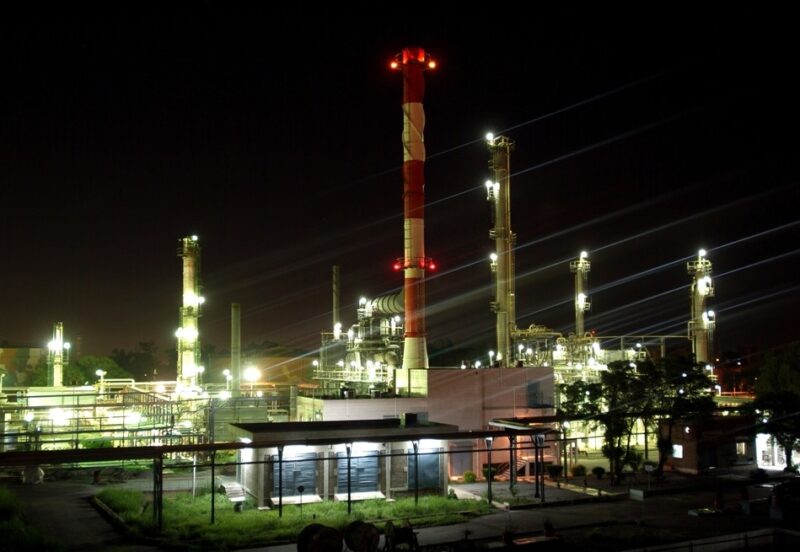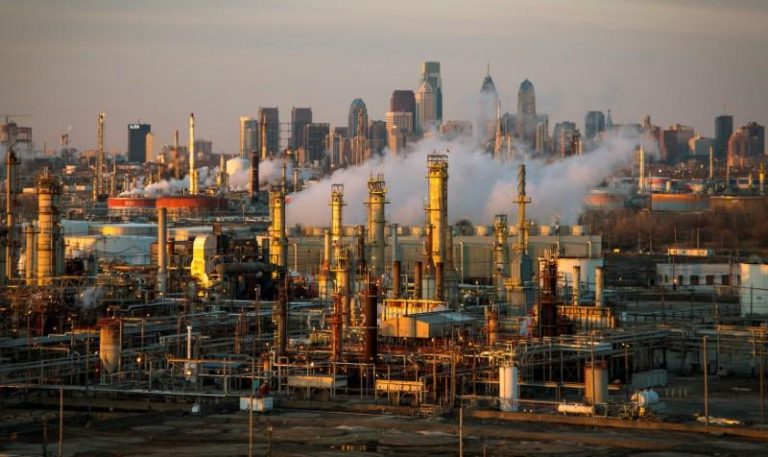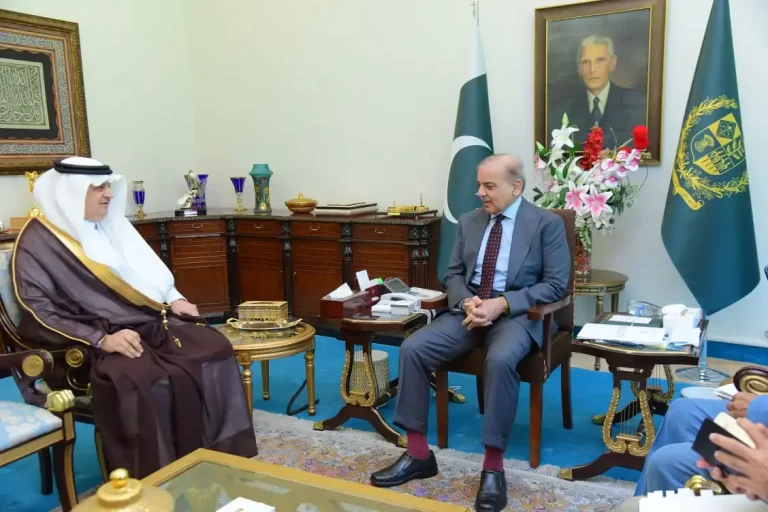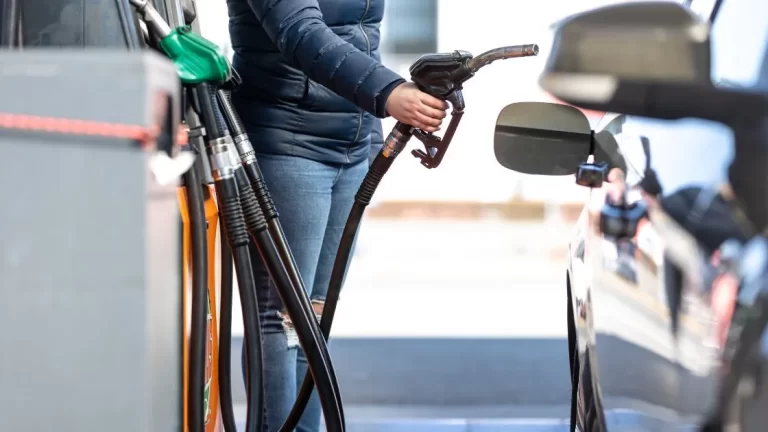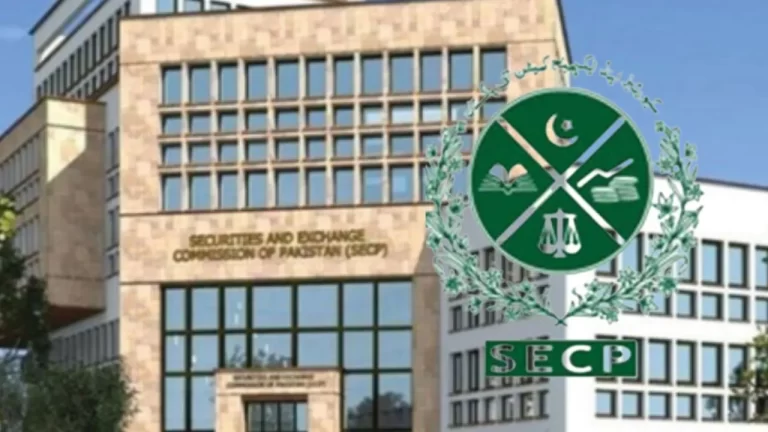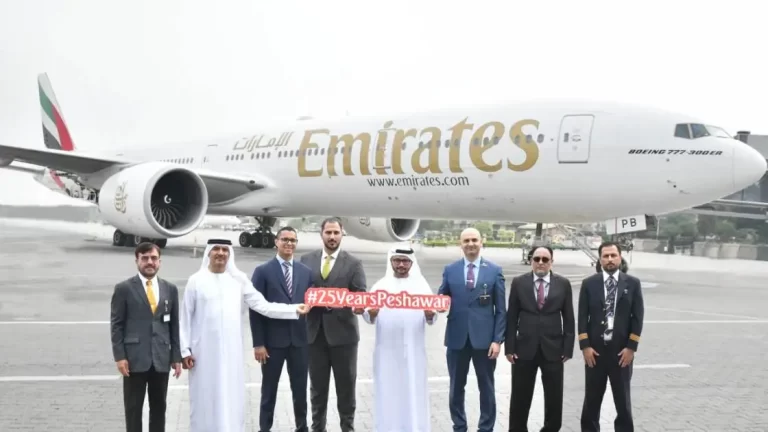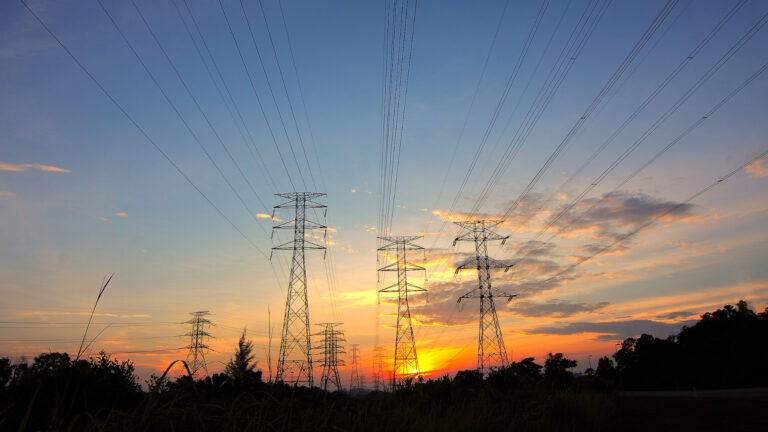Govt to allow 100% Financing for refineries’ upgradation projects
Ibn-e-Ameer
Islamabad: The coalition government is likely to allow oil refineries to make 100 percent financing from incremental revenue to execute upgradation projects.
The previous government of PTI had proposed to place cap on 30% percent financing out of incremental revenue collected through levying 10 percent deemed duty on petrol and diesel.
The previous government had already allowed 10 percent deemed duty on petrol and diesel.
However, PTI government had failed to take a decision on financing to be allowed to refineries out of incremental revenue for upgradation projects.
Sources told Express Tribune that coalition government was going take up matter of allowing 100 percent financing to refineries out of incremental revenue to execute upgradation projects.
This proposal is part of policy which was going to be approved to attract financing from the Saudi government to set up mega refinery in Pakistan.
During previous government of PTI, Cabinet Committee on Energy (CCoE) was to take the new oil refinery policy 2021 on January 13, 2022 for formal approval.
However, since that time, no decision had been taken on it.
Earlier, the cabinet committee on energy had noted the position of deemed duty oil refineries had collected in past.
Prices of Furnace Oil in Pakistan Up by over Rs 9000 per ton
In a summary, the petroleum division had informed that oil refineries had collected Rs 200 billion and they had spent the same amount on installing degradation projects.
Sources said that the government had already approved 10 percent tariff protection in the budget. It had also been implemented already.
Earlier, the CCOE was scheduled to take up draft of oil refinery summary on December 16.However, it delayed its consideration.
Now, there is the dispute of allocation share out of incremental revenue for degradation projects of existing refineries.
Earlier, the petroleum division had proposed to allocate 40 percent share out to incremental revenue for existing refineries to set up gradation projects.
However, CCoE had raised observation over it. In a fresh summary, the petroleum division had proposed a 30 percent share for up-gradation projects out of incremental revenue.
Meanwhile, existing oil refineries will spend 70 percent share of their equity on installing up-gradation projects.
The petroleum division had also abolished a proposal of 10 -year tax holiday for refineries.
During the last meeting, CCoE noted that a summary regarding tariff protection (deemed duty) for refineries had already been tabled in the last meeting. Therefore, it discussed but did not take any decision.
Petroleum division had earlier linked 10% tariff protection for the existing refineries on motor gasoline and diesel with the construction of up-gradation projects before December 31, 2025, in the new oil refinery policy 2021.
High Sale of PSO pushes Share Price Up
The petroleum division had held a meeting with representatives of refineries on October 11.
The energy ministry is preparing a summary again with some changes like the incentives are capped at 30 instead of the previous 40% of the project cost.
Also, the 10 year tax holiday is abolished, officials said that Minister now will meet the finance minister and Asad Umer to get them on board before sending the summary back to CCoE
PTI government has already approved 10% tariff protection for existing refineries in budget 2021-22. Now, the dispute is to settle a mechanism of paying refineries to set up refineries projects.
In a final draft of refinery policy 2021 available with Newztodays.com, the Petroleum division says that Itthere shall be tariff protection in the form of 10% import duty on Motor Gasoline and Diesel of all grades and imports of any other white product used for fuel for any motor or engine.
It will be effective from the date of the commission for six years, provided that the refinery starts construction of the project before December 31, 2025.
Furthermore, there shall be no import duties and Sales Tax on import of Petroleum Crude oil with effect from July 1, 2022, being the primary raw material, by Refineries themselves.
However, the finished products shall be subject to import duties and Sales Tax notified by the competent authority from time to time.
The government would give the pricing regime for new Refinery projects a pricing mechanism that shall be no less favorable than the prevailing mechanism till deregulation.
The Product Pricing Formula of refineries shall be based on “True Import Parity Price” to be derived from Arab Gulf Mean FOB spot price, or if not published, shall be derived from Singapore Mean FOB price.
The government will add all other elements, including Premium, Freight, Port Charges, Incidentals, Import Duties, exchange rate, provincial taxes as applicable, and different price adjustments as per PSO actual imports, in the FOB price arrive at True Import Parity Price.
Additionally, prevalent Inland Freight of imported crude oil to refineries and provincial duties, levies/cess, and taxes (with import duty on crude oil, if any) at the import of crude oil shall be added for refineries.
The government has implemented a 10% upfront tariff for existing oil refineries effective from July 2021.
Petroleum division had informed cabinet committee on energy (CCoE) that government had already approved 10% upfront tariff for the existing tariff in budget 2021-22.
Recently, chairman CCOE Asad Umar had raised questions over the 10 percent upfront tariff for existing oil refineries to upgrade projects.
The cabinet body on energy had approved new oil refinery policy 1021 in principle. However, it had directed Petroleum Division to revisit the upfront tariff.
Now, the Petroleum division had informed CCoE that upfront tariff was part of finance bill 2021-22 which Parliament had already approved in the budget for the ongoing financial year.
Cabinet Committee on Energy (CCoE) had approved in principle oil refinery policy 2021 earlier subject to clarification on certain issues.
It raised questions on the use of incremental revenue again. It also questioned the utilization of deemed duty by oil refineries in past. CCoE also raised questions on the collection of revenue and its utilization if the government allows 10% tariff protection.
The petroleum division will submit a response again for formal approval of the policy.
The CCoE has not given go-ahead to upfront tariff so far.
The petroleum division had proposed 10 % tariff protection for the existing refineries to generate revenue for up-gradation projects.
However, CCoE again raised questions over upfront tariffs.
Cabinet Committee on energy had raised some observations over upfront tariff along with some other questions. The petroleum division had submitted a response to CCOE now for formal approval.
The petroleum division said that government would contribute 25-30 percent for the up-gradation of refinery projects. Moreover, the Petroleum division said that oil refineries had collected Rs 200 billion on account of deemed duty. But, they had also spent the same amount on the up-gradation projects.
Moreover, the petroleum division said that government would seek Rs 500 million guarantees from the refineries and would pay from incremental accounts from projects after award of contracts.
Petroleum division informed it had reviewed the CCoE’s observations and responded item-wise.
It said that the earlier proposal was to implement upfront utilization of incremental tariff protection in the Policy effective from January 1, 2022.
However, the petroleum division had amended now with the condition that refineries could utilize the amount after the award of EPC.
The incentives are likely to start by the start of 2024.
OGA will monitor the generation of incremental revenue that each refinery shall deposit in a special reserve account.
The refineries will open a bank account in NBP. They will ensure its utilization for up-gradation and expansions on a proportionate basis of the incremental revenue.
The government had now extended a bank guarantee worth Rs 500 million per refinery till the commissioning of the project (COD).
The Cabinet Committee on Energy held a discussion. Secretary, Petroleum Division Dr Arshad said the petroleum division had addressed observations of the CCOE.
The cabinet body on energy discussed the policy threadbare.
The Chairman Committee Asad Umar termed the proposed incentive for the up-gradation of the refining industry as a very unusual intervention for the Government.
He observed that it seemed the government was going to give incentive packages to a certain group of investors.
Umar suggested designing a package in a bid to discourage the misuse and maneuvering of the government by oil refineries.
Asad Umar said that government should provide some protections to oil refineries instead of extending upfront support.
He opposed giving upfront money from the taxpayers.
Minister further said that it would be difficult for the government to examine spending of 40% upfront advance to the refineries in a fair and transparent manner.
He also raised questions on the deemed duty oil refineries had collected in the past and regretted there was no outcome.
Minister for Energy Hammad Azhar stressed defining some benchmarks to up-gradate refineries to avoid any litigation in the future.
Minister for Maritime Affairs Ali Zaidi said they were deliberating policy on single point Moring Facility (SPM) among the stakeholders.
He said that fiscal incentives for refineries proposed in the oil refinery Policy 2021 would be at the cost of Sea Ports.
Therefore, he opposed the inclusion of any upfront incentives in the proposed policy 2021.
Zaidi stressed on Petroleum division to limit its.
The cabinet committee on energy considered “Draft Pakistan Oil Refining Policy 2021” and approved the draft Pakistan Oil Refining Policy 2021, excluding the proposed upfront payment of incremental incentive to the existing refineries for up-gradation.
It directed the Petroleum Division to review the upfront tariff incentives and re-submit a summary for consideration again.
Earlier, the Petroleum division had presented a refinery policy in a last meeting of CCOE. However, it had directed the Petroleum Division to clarify the mechanism of investment of incremental revenue by revenue refineries for up-gradation projects.
Asad Umar chairman of CCOE had raised questions over upfront tariff. However, officials of the Petroleum division said that tariff protection is not upfront but the timing of the withdrawal.
The tariff will become applicable and will go into a reserve account. It will only be withdrawn after the award of the EPC contract expected in 2024 and refineries could only spend on up-gradation projects.
Petroleum division had claimed that the cabinet committee on energy (CCoE) has agreed to 95 percent of the draft of the Pakistan Oil Refinery Policy that offers 10% tariff protection to the existing refineries. Officials say that there is a difference of only mechanism regarding incremental revenue through tariff protection for up-gradation projects of the existing refineries.
Now, the cabinet body on energy had directed the petroleum division to submit a draft of the oil refinery policy in the upcoming meeting.
At the CCoE’s most recent meeting, the Petroleum Division presented a draught Pakistan Oil Refining Policy.
Read More: 10% incentives offered for petroleum refineries in budget
CCoE detailed the oil refinery policy’s most important elements. It further stated that the proposed policy will give incentives for existing refineries to upgrade to produce Euro-V-specified products.
It will also use economic incentives to entice potential investors to build new, cutting-edge deep conversion refineries.
Read More: AKD securities turned bullish on oil refineries in Pakistan
The cabinet body discussed a draft of the policy in detail at the meeting. The ministry of maritime affairs said that the business of Single Point Mooring (SPM) is relevant to it.
Stakeholders were also considering a policy connected to SPM, according to the ministry.
It went on to say that the projected Pakistan Oil Refinery Policy 2021’s economic incentives will come at the expense of seaports.
As a result, the Ministry of Maritime Affairs did not support it in the policy proposal.
The chairman CCOE Asad Umar raised concerns over the proposed upfront availability of tariff protection benefits to existing refineries for up-gradation in new proposed oil refinery policy.
He stated that the government should provide incentives to existing refineries when projects reach their Commercial Operation Date (COD).
He also remarked and directed that the planned tariff protection incentive’s monitoring and governance system be simplified in order to reduce the government’s role.
Read More: Furnace oil turned black gold for refineries
The Cabinet Committee on Energy (CCoE) reviewed the summary and directed that the Petroleum Division reassess the policy in light of the following particular points/observations.
1: The possibility of upfront tariff protection benefits for existing refineries that choose to upgrade.
2: To limit the role of government and to simplify the monitoring/governance method
3: Handling of tariff protection incentives from July 1 to December 31, 2021.
The Petroleum Division will submit the amended draft of the oil refinery Policy to the CCoE for review after making viable recommendations based on the foregoing observations.


